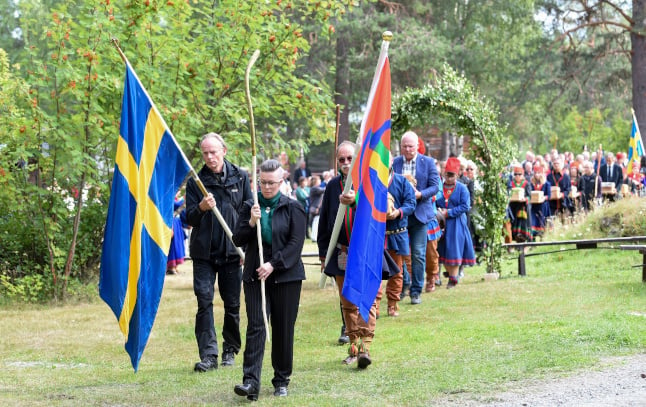The commission would be tasked with charting and investigating the policies affecting the Sami and their implementation.
“It feels very good that we can finally appoint a truth commission,” culture and democracy minister Amanda Lind said in a statement.
“The government has a responsibility to increase knowledge of the abuses, rights violations and racism that Sami people have been subjected to,” Lind continued.
The minister also said that increasing awareness of “historical injustices” was important to “facilitate reconciliation”.
The Sami are believed to have arrived in the region at the end of the last ice age.
Victims of a brutal assimilation policy in the past, today they have been recognised as an indigenous people and have their own parliament in Sweden, but rights groups continue to denounce the state’s handling of Sami issues.
Although Sweden does not include ethnicities in any censuses, the Sami Parliament estimates between 20,000 and 40,000 Sami live in the country.
Of these, between 2,500 and 3,000 make a living from traditional reindeer herding, closely linked to Sami culture.
The commission would also be tasked with spreading awareness of Sami history and how past abuses affect Sami people today.
Last week, a similar initiative was launched in neighbouring Finland, when the government officially appointed a truth and reconciliation commission to “collect Sami people’s experiences of the actions of the Finnish state”.
The independent Finnish panel, whose five members were appointed by both the government and Sami representatives, is expected to begin hearing testimony within the coming weeks and will deliver its final report in November 2023.
Members of the Swedish commission have yet to be appointed but according to the government it would be tasked with presenting its findings by December 1st, 2025.
Representatives of the Sami Parliament, which together with Sami interest groups petitioned Sweden’s government to establish a truth commission in 2019, welcomed the announcement.
“It is now time that the Sami people’s history and reality comes to light,” said Marie Persson Njajta, chair of the Sami Parliament’s group for a truth commission.



 Please whitelist us to continue reading.
Please whitelist us to continue reading.
Member comments